Frequently Asked Questions
How do I know when the varicose vein condition is bad enough to consider the procedure?
We treat the full spectrum of venous disease, from cosmetic treatment to several signs and symptoms, such as venous ulcers or bleeding, or phlebitis (inflammation of the veins). Most patients with symptoms, such as leg pain, heaviness, cramping, itching, swelling and restless legs, benefit from our varicose treatments.
Can you still assist me even if my varicose veins are very bad?
Yes, especially if you have severe disease, and if you have had previous vein surgery,
e.g.: Venous stripping. Patients with very severe disease often have the greatest improvements.
Is there any medical condition that can prohibit me from undergoing the procedures?
Yes, other severe illnesses, active malignancy (cancer), or a known allergy to sclerosants. We use Fibrovein (sodium tetradecyl sulphate). Age is NOT a contraindication to our procedures, as all procedures are performed under local anesthesia; and it is the safest method of treatment for patients who have any Anaesthetic risk.
Are the procedures painful?
There is slight discomfort, as all procedures are performed under local anesthesia, which requires injection of local Anaesthetic. Most of our patients tolerate the procedure very well, with only very few (20%) requiring a mild conscious sedation which is administered by Dr Ah Kun, an anaesthetist and conscious sedationist.
How safe are these in-room procedures?
Your safety is our primary concern. By performing the procedures in a hospital setting with a dedicated seditionist and full resuscitation equipment, your safety is assured.
How do these procedures compare to surgery?
Radiofrequency ablation and foam sclerotherapy is as effective as open surgery (stripping) and is recommended above surgery by the American Venous Forum. The advantages of radiofrequency, foam and phlebectomy are the absence of large incisions, minimal pain, bruising, bleeding under the skin, as well as a much quicker recovery following the procedure as compared to open surgery. In the long term these vein treatments are as effective and durable as open surgery.
Are there any serious side-effects related to these vein treatments?
Side effects and complications are rare. Radiofrequency complications include deep vein thrombosis, skin burns, and numbness (if a nerve is situated close to the vein). Complications from sclerotherapy include an allergic reaction to the chemical as well as embolization of foam to the lung, and skin staining (temporary) in fair-skinned individuals. These complications are, however, very rare, and usually self-limiting and treatable.
Will I have any scars?
As the varicose veins and spider veins are destroyed by needle access and very small incisions, there will be no scarring following the procedure.
What can I expect during the initial consultation?
You will be seen by a vein specialist surgeon, Dr. Govind, who will review your medical history, do a clinical examination, a duplex doppler assessment of the veins in your legs, and vein mapping. Selected patients will have arterial pressure measurements and waveforms of the legs done. Varicose vein treatment options will then be discussed with you.
Is there a downloadable assessment form?
Yes, please download forms from our website and fill in the Medical history section (Pg. 1-3) prior to your arrival. Click here to download the form now.
Will the medical aid pay for the vein treatment procedure?
Most medical aids will cover the procedure. Some medical aids will not cover sclerotherapy. We will enquire from your medical aid with regards to this.
Will there be a follow-up after the vein treatment procedure?
Yes, 4-5 days following radiofrequency ablation. The follow-up involves ultrasound scanning to assess the success of the vein treatment and to eliminate complications.
How long until I can expect positive results?
Usually after 1-2 weeks, symptoms will gradually improve. Expect cosmetic improvement in up to 3 months.
How long should the compression stockings be worn for and why?
Usually for 1 month after any procedure. You may take off stocking at night, for exercise, and bathing/showering.
How long will I need to take off from work?
The recovery period at home following the procedure will be 1-2 days. In the UK patients have these procedures in their lunch breaks!
Can I drive myself home after the vein treatment procedure?
You are advised to have someone drive you home especially if you have had sedation.
